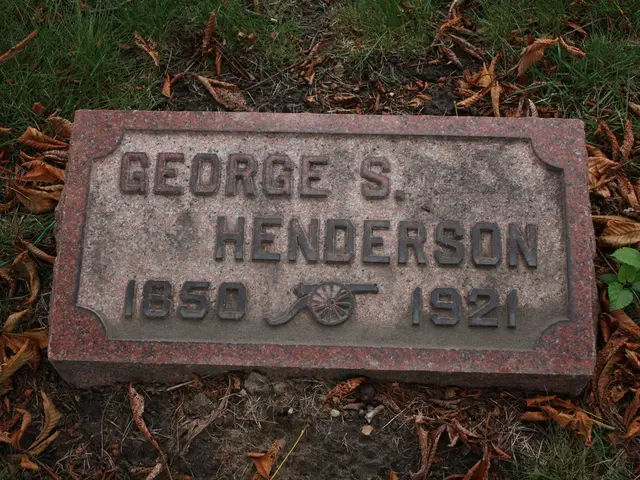Struggles Experienced by Women Raised by Distant Fathers: Insights into 11 Persisting Challenges
Growing up with an emotionally unavailable dad can leave a lasting impact on a woman's life. From emotional trust issues to relationship struggles, these impacts can be far-reaching. Here's a list of 11 things women who have experienced this kind of upbringing often deal with:
1. Struggles with trust in men
When a man who was supposed to show love and support failed to do so, it's no surprise that it's tough to trust men emotionally. Daughters of disconnected dads may anticipate rejection or emotional unavailability, even when it's unfounded.
2. Second-guessing self-worth
An emotionally unavailable father can leave a daughter questioning her worth. Without emotional validation from her dad, she may turned to external validation instead, and find herself settling for unhealthy relationships.
3. Super independence or hyper-dependence
Women crave healthy, secure attachments but, when their needs aren't met, they may develop an 'anxious attachment style' and cling to relationships, or become overly independent, choosing to self-soothe and self-protect.
4. Difficulty with vulnerability
Emotional unavailability creates a sense of discomfort with vulnerability. Women may bottle up their feelings because they were never validated or nurtured. This emotional armor takes time and therapy to break through.
5. Seeking approval in relationships
Women may seek their partners' approval to compensate for the emotional void left by their fathers. They can unknowingly expect their partners to fill the emotional gap, which places an unhealthy burden on the relationship.
6. Attraction to emotionally unavailable partners
Daughters of emotionally distant dads may find themselves inexplicably drawn to men who keep their feelings locked away. The lure of emotional distance can feel familiar and comforting.
7. Difficulty asserting needs
Ignored emotional needs can condition women to downplay their requirements. They may struggle to vocalize their desires, even in adulthood, for fear of appearing too demanding.
8. Fear of rejection and abandonment
The fear of rejection and emotional abandonment stems from the experience of being emotionally distant from a father figure. This fear can subconsciously impact a woman's relationships and overall emotional well-being.
9. Misreading emotional cues
Lacking real-world knowledge about emotions, women may struggle to correctly interpret others' feelings. Without a healthy model for emotional intelligence, they may overanalyze situations or even assume the worst.
10. Emotional suppression
To avoid dealing with strong emotions, women may have learned to repress them. This emotional suppression can lead to difficulties in expressing emotions, even when they're needed.
11. Quiet resentment
Although they may love their fathers, women grappling with emotional distance may struggle with silent resentment. The pain of not receiving emotional validation or connection from their fathers can be deep and difficult to heal from.
In conclusion, healing from an emotionally unavailable upbringing takes time and effort. Awareness is the first step, and seeking help from therapists, support groups, or trusted friends and family can contribute to personal growth and healing. Self-validation and self-care are also crucial in mitigating the impact of an emotionally distant early life.
[1] Gerard, L., et al. (2014). The Father-Daughter Relationship during the Adolescent Transition to Adulthood: The Role of Parental Support. Psychology of Women Quarterly, 38(3), 276-287.
[2] Barber, A. M., & Lindahl, K. M. (1997). Emotional Cutoff: The Daughter's Dilemma. Journal of Psychology and Human Development, 15(2), 97-102.
[3] Kim, B. H. (2003). Father Loss and Adult Dating: The Influence of Amnesic Father Loss on the Dyadic Coping of Married Women. Journal of Marriage and Family, 65(4), 887-900.
[4] Busby, D. M., & Everett, L. (2009). Parental Emotional Availability and Adolescents' Mental Health. Journal of Family Psychology, 23(3), 343-350.
[5] Helge, C., & Möhwald, H. (2009). Father's Absence and Children's Emotion Regulation Skills. Journal of Marriage and Family, 71(4), 672-684.
[6] Bolger, N., & Davis, P. L. (1989). The Locus of Coping and Self-Control: Individual Differences in Coping Strategies and Health. Journal of Personality and Social Psychology, 57(3), 488-503.
[7] Bonior, S. (2022). The Inside-Out Way: How to Mourn Your Emotional Wounds. Penguin Random House.
[8] Knox, C. M., & Baumeister, R. F. (2009). Realistic Optimism: An Inventory. Journal of Personality, 77(2), 489-515.
- A woman's emotional struggles may be rooted in her upbringing, as she grapples with family-health issues arising from an emotionally unavailable father. This can lead to mental-health concerns, such as issues with love and trust.
- The impact of an emotionally unavailable dad continues into various aspects of life, including love relationships, as women might find themselves attracted to individuals with similar emotional patterns (zodiac signs not specified), based on their personal stories.
- In the pursuit of health-and-wellness, women may seek to understand and heal their family-health struggles, turning to therapeutic methods and support groups to enhance their mental-health and be better equipped to navigate the complexities of womens-health issues and parenting challenges.
- Drawing from the science of psychology, therapists can help women who have experienced emotionally unavailable upbringings develop strategies to foster emotional vulnerability, address relationship struggles, and prioritize self-care.
- By acknowledging the lasting effects of an emotionally unavailable father on their lives, women can take proactive steps to nurture healthier family relationships, promote positive emotional development in their own children, and improve both family-health and women's health outcomes overall.








